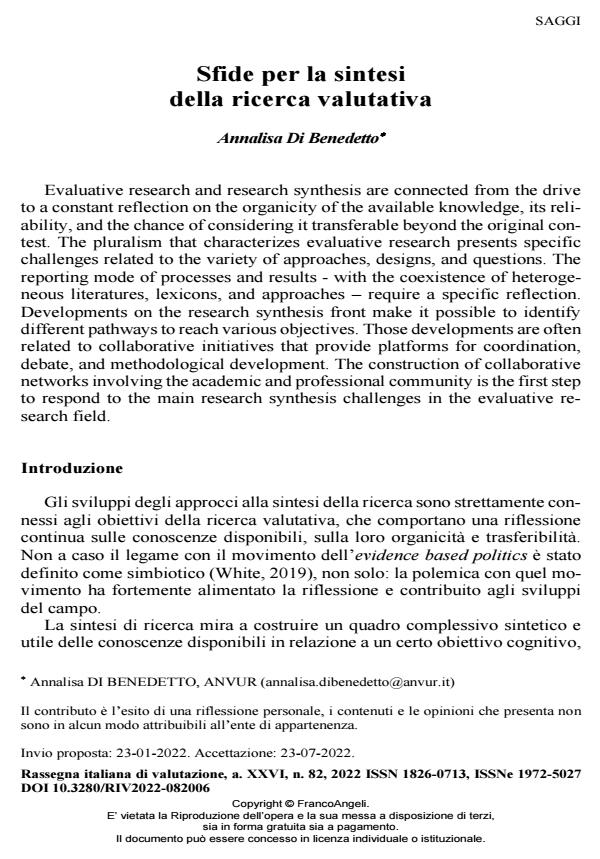Sfide per la sintesi della ricerca valutativa
Journal title RIV Rassegna Italiana di Valutazione
Author/s Annalisa Di Benedetto
Publishing Year 2023 Issue 2022/82
Language Italian Pages 22 P. 93-114 File size 396 KB
DOI 10.3280/RIV2022-082006
DOI is like a bar code for intellectual property: to have more infomation
click here
Below, you can see the article first page
If you want to buy this article in PDF format, you can do it, following the instructions to buy download credits

FrancoAngeli is member of Publishers International Linking Association, Inc (PILA), a not-for-profit association which run the CrossRef service enabling links to and from online scholarly content.
Evaluative research and research synthesis are connected from the drive to a constant reflection on the organicity of the available knowledge, its reliability, and the chance of considering it transferable beyond the original contest. The pluralism that characterizes evaluative research presents specific challenges related to the variety of ap-proaches, designs, and questions. The reporting mode of processes and results - with the coexistence of heterogeneous literatures, lexicons, and approaches - require a specific reflection. Developments on the research synthesis front make it possible to identify different pathways to reach various objectives. Those developments are often related to collaborative initiatives that provide platforms for coordination, de-bate, and methodological development. The construction of collabora-tive networks involving the academic and professional community is the first step to respond to the main research synthesis challenges in the evaluative research field.
Annalisa Di Benedetto, Sfide per la sintesi della ricerca valutativa in "RIV Rassegna Italiana di Valutazione" 82/2022, pp 93-114, DOI: 10.3280/RIV2022-082006